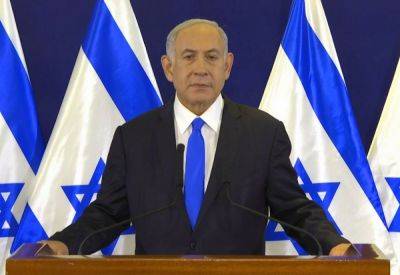On 2-state solution, ask Israelis and Palestinians
With the announcement by Norway and Ireland that they have recognized Palestine as an independent state, and with Spain expected to follow suit by the end of May, it appears that international momentum for a two-state solution to the Israeli-Palestinian conflict is growing.
The concept has long been supported by the US and its allies, as well as most Arab states and the United Nations. In 2017, Hamas amended its charter to accept the existence of Israel based on borders established after the six-day war in 1967. It reportedly indicated recently a willingness to disarm if a Palestinian state were established. But the present Israeli government led by the prime minister, Benjamin Netanyahu remains implacably opposed to a two-state solution.
Could things be different under different leadership? To answer this, we need to know whether the Israeli and Palestinian people could be persuaded to accept such a plan. Here it’s worth taking a look at what polling tells us.
Politicians all too often find it convenient to blame the public for their failures. This is particularly true of failed peacemaking. The Palestinian Center for Policy and Survey Research (PCPSR) has tracked the ups and downs of support for the two-state solution from a high of 51% and 53% for Palestinians and Israeli Jews in polls taken in 2016 to a low of 33% and 34% respectively in 2022.
But pollsters in both Israel and Palestine, who do excellent work to the highest technical standards, sadly have had little or no opportunity to measure public opinion in support of a successful peace process. They measure the situation as it is – in the context of failure. Instead they need to measure what could be, how attitudes could change given proactive political







